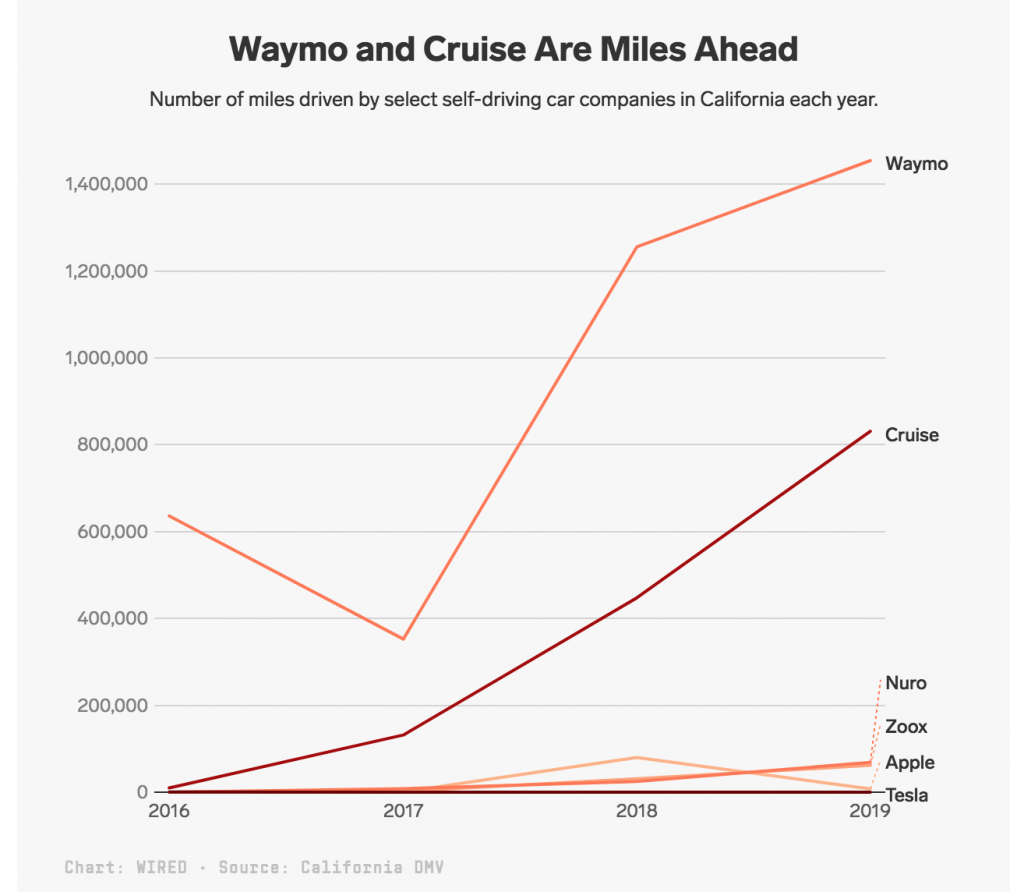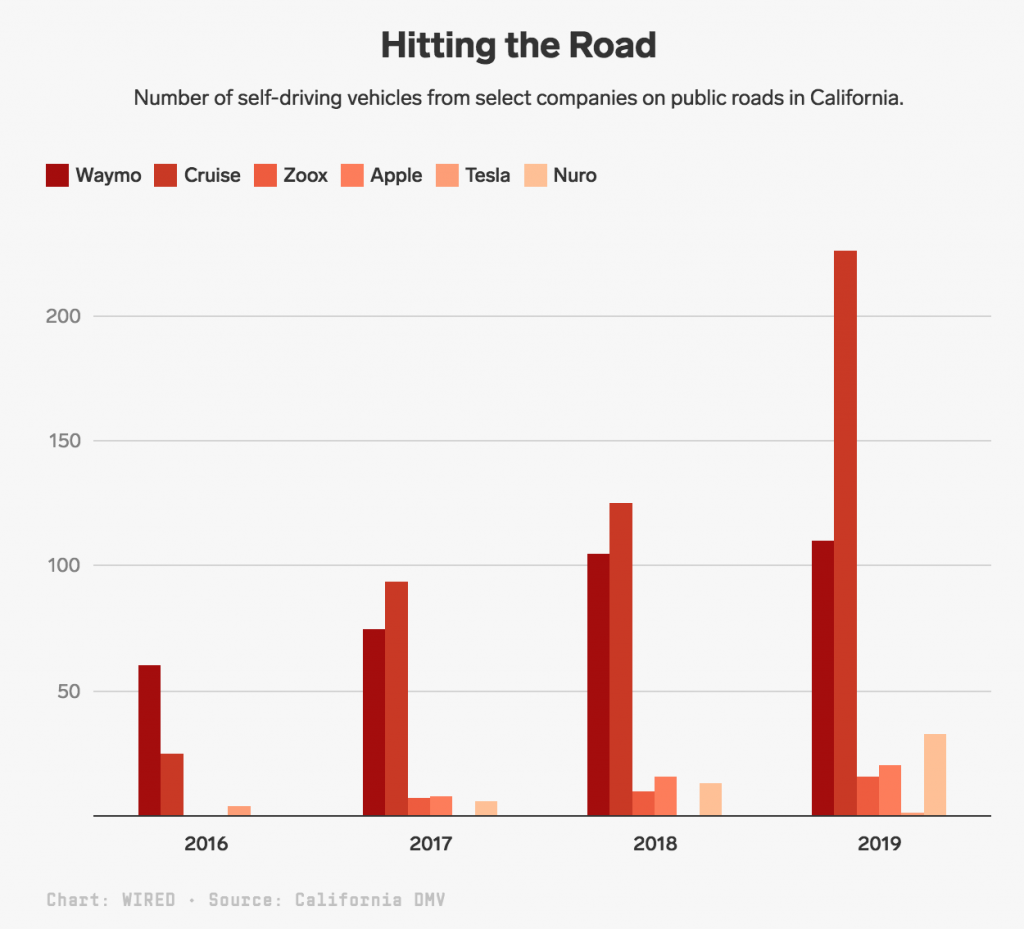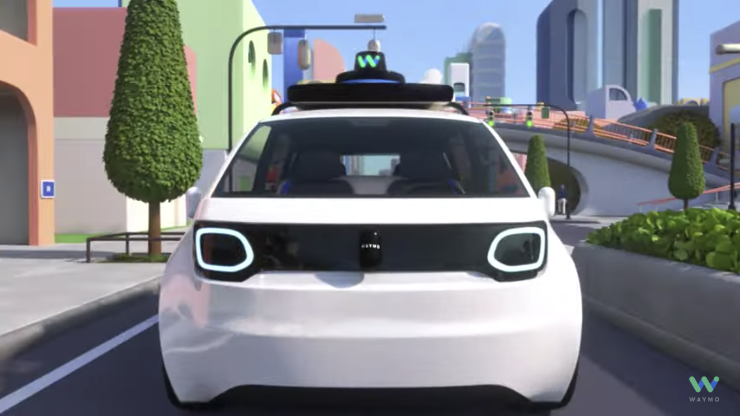
California releases new figures for driverless vehicles.
Report: Autonomous Vehicles Still Not Ready For Prime Time Yet
California leads the country on strict rules concerning the reporting of how driverless cars are used and the statistics reported to oversight agencies. A wired.com article reports that new facts, figures and projections for 2020 and the use of autonomous vehicles show major progress.
Robot cars in autonomous mode drove almost 2.9 million miles on public California roads last year, up from 2.1 million miles in 2018. How many times in 2019 did human safety operators have to take control of self-driving vehicles being tested in California? Last Wednesday, the state’s Department of Motor Vehicles, released the numbers, as shown on the charts.
Waymo, the self-driving arm of Google’s parent company Alphabet, logged the most miles at more than 1.4 million. The company raised $2.25 billion in outside investment funding on Monday.
For various reasons, disengagements of the autonomous system are a crummy tool for measuring progress toward safe, efficient autonomy—and for comparing momentum across companies. The players don’t always define “disengagement” in the same way. Plus, lots of the big autonomous vehicle players—Waymo, Uber, and Argo AI, among others—do the bulk of their testing outside of California. Companies have more advanced internal metrics for measuring their own success—you can read about those here. The reports also do not include driving on private test facilities and campuses, nor the many more “virtual miles” that autonomous vehicle systems travel in digital space.
Of the 36 companies that reported testing in California between December 1, 2018 and November 30, 2019, Cruise’s filing may reveal the most about its progress. That’s because the General Motors subsidiary does nearly all its public road testing in San Francisco, where it’s aiming to launch a robotaxi service in the next few years.

All told, safety operators across California took control from their robots about 9,000 times, but only a few companies accounted for most of those: Lyft, Mercedes-Benz, and Toyota each reported more than 1,600 disengagements. State law requires carmakers to explain each disengagement. The reasons for disengagement were usually blamed on a software glitch and that is not going to help promote the use of these vehicles if the software isn’t more dependable.
While many of the companies have increased their testing, some, including Tesla have seen a bit of a decrease.
read more at wired.com








Leave A Comment